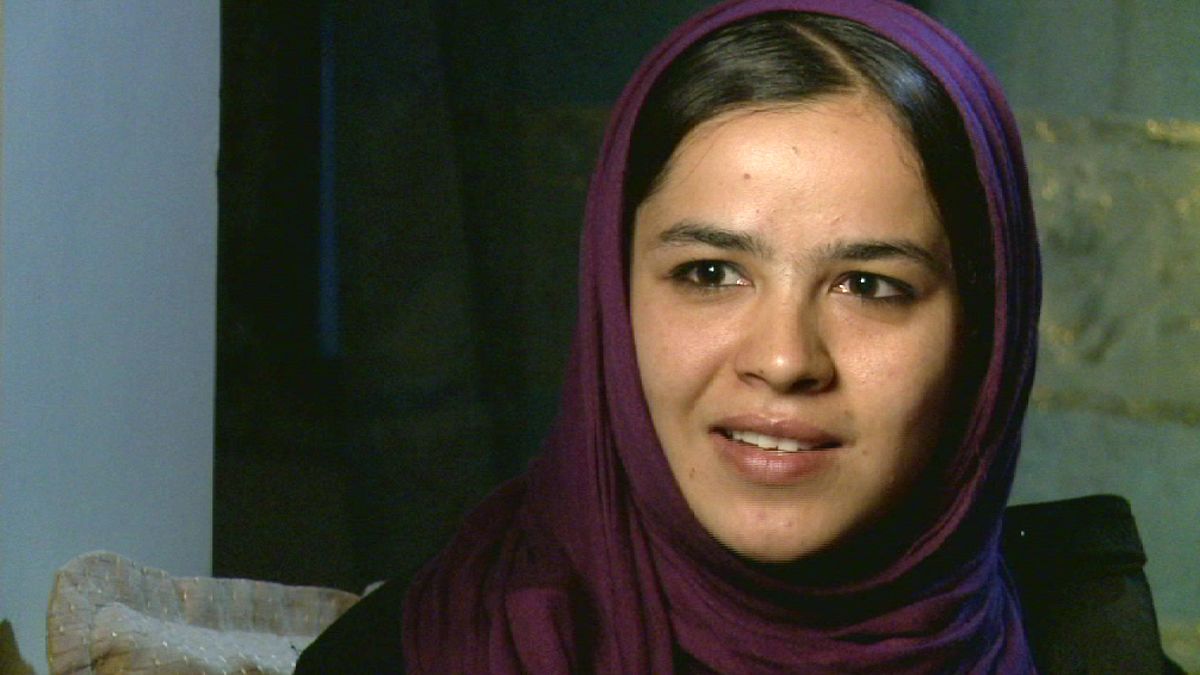It is just another day at the Pajhwok press agency in Kabul, where reporting scenes of demonstrations and suicide bombs are common place. It is also the place we meet Frozan Danish Rahmani.
At 28, she is coming up to her 10th year in journalism.
She talks about her passion for news and how she relishes the chance to report in the field:
“I am a product of war. I was born in war, I grew up in war and today I still live in war. It’s become something normal for us and I no longer feel panic, or fear. On the contrary, whenever there’s an explosion somewhere, or an attack of some sort, as a journalist, I want to go out into the field, to be there to do my job.”
To a certain extent, Frozan owes her destiny to the former Taliban regime:
“I was a student back then but I could no longer go to school. The Taliban did not allow it for girls. At the time, I used to listen to the radio, television was forbidden. So I listened to the radio in secret and looked forward to the news bulletins. That’s what triggered my passion for news and journalism.
At the Afghan President’s spokesman weekly press conference, Frozan’s female presence is a rare sight.
At the time of this report, she was one of the very few women to report out in the field. She has worked hard to get where she is but it has not been easy.
She has faced constant threats of violence along the way. One of her male colleagues was abducted for working with a woman, whilst she was running a television programme on a previous job. She herself received warnings of kidnap.
Forzan recounts the experience:
“At the time, armed men, who were commanders, came to our television station. They threatened the head of news and culture and told him ‘you mustn’t let this girl work on television, if we see her once more on air, we will make problems for you, we could even kill you….’ They were really serious. From that day, I was no longer allowed to run my programme and that’s when I decided to fight against such persecution and I found the energy to do it.
Afghanistan is ranked as one of the most dangerous countries in the world for journalists. Women are most at risk and are often kept from progressing in their trade by religious groups, local security forces and even relatives.
After initial reluctance, Frozan has won the support of her close family:
“At the time, some of our family members cut their ties with us. They refused to have any connections with people whose daughter worked for television, and on top of that, with men.”
Professional recognition of women is far from established in Afghanistan and their access to the circles of power is even more remote. Frozan considers this to be a great loss for her country. A few months after this report, she left her current job to work for another agency.
She explains why she thinks women should be allowed to work in politics:
“Women are emotional. They are often able to soften the violent and aggressive hearts of men and help the peace process. Right now there’s an attempt to involve women in the negotiation process with the Talibans, the Afghan government has spoken of it several times. Most institutions agree that women’s participation in the negotiations could be fruitful. Personally, I’m a hundred per cent sure that women’s presence in politics would be a good move.”
It is the end of our Afghan edition of Women and War. Join us next month when we are in the Democratic Republic of Congo.
